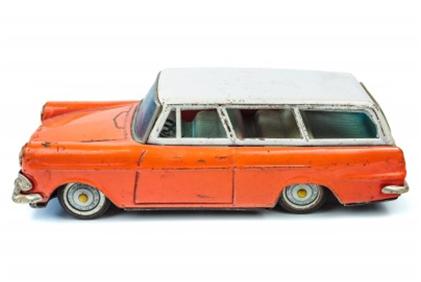Last Updated on Mar 5, 2020 by James W
You’re looking for a way to add more money to your bank account, but the biggest thing you have to sell, your car, is a worthless clunker. The Kelley Blue Book value is negligible, and you simply don’t have the time or energy to try selling it, but you don’t want it rusting in your yard either. It’s time to ask yourself, “How do I donate a car?” You could actually earn more from donating your car than selling it.
Earn a Tax Deduction
The simplest way to make money donating your car rather than selling it is through the tax deduction you earn.Yes, that means you won’t immediately have the cash on hand. However, what you earn through a deduction could prove to be more than what you’d earn through a sale, especially if your car is more than a few years old or is in poor condition. The deduction you earn will either increase your refund or decrease the amount of tax owed when you file. That’s when your donation turns into actual cash on hand — cash you would have had to pay the IRS.
There’s no limit to the amount you can deduct for your car. For example, if the charity sells the car for $2,000, even if the Kelley Blue Book value is $1,500, then you can claim $2,000 as a deduction. Conversely, if the Blue Book value is greater than the amount the charity earns for the sale, you still have to go with the amount the charity earned. Still, the Blue Book value is no guarantee of an amount you’d get if you tried selling it yourself, and a charity in the business of selling donated cars knows how to get the maximum value.
Don’t Waste Time and Money
So the Kelley Blue Book lists an attractive value for your vehicle. You’re worried that if you donate the vehicle, you’re going to miss out on that money. There is an easy way: Donate the car, let the charity deal with the headache of locating a seller and moving the vehicle, and then you deduct the sale price from your taxes. But let’s just say you try to sell it yourself.
It costs money to sell a vehicle, and it takes time —a lot of your free time. You have to decide where to list your car and pay fees for listing it. If you sell it on an online auction site, you have to pay a substantial percentage of the sale price in fees, and you may have to claim the profit you earned on your taxes. If someone from out of the area buys it, you have to figure out how to ship it to them and deduct the cost of shipping from the price the buyer pays. If you decide to add the cost of shipping to the price, you’re not going to attract as many buyers. Selling a vehicle is practically a full-time job, and if you’re like most people, you have better things to do in your free time.
Find Someone Who Wants the Vehicle
If you go the sell-the-car route, you could earn exactly zero dollars. Actually, you might be in the red if you consider the cost of continuing to insure a car you don’t want, and if someday you decide to pay a landfill to tow it away. In other words, you could fail to find a buyer. It’s a very common occurrence for people with older or well-worn cars.
A charity will take your vehicle, no matter the condition, because they’re willing to make money on the parts if necessary. A charity isn’t picky about the make, model or color. One call to a charity, and the car is no longer your problem — it’s well on its way to earning you a sizeable tax deduction.
Having more money in your pocket — even if you get it at the end of the year via tax deduction — means you’ll have to come up with less money for the new car you’ve been eyeing, to replace your clunker. Alternatively, you could forgo cars entirely if you have a good public transportation system in your area or if you know someone willing to carpool. Stop wasting money and time on a car that’s always breaking down; if it costs more to repair than to simply get rid of, it’s time to let it go.
About the Author:Michael Keeble is a tax advisor and financial blogger. He revels in introducing his clients to unexpected deductions, like the one you get with a car donation.





